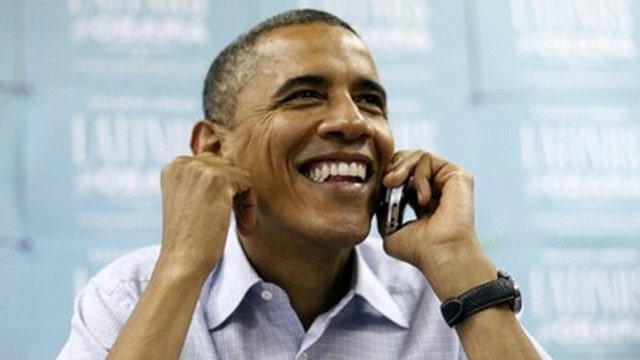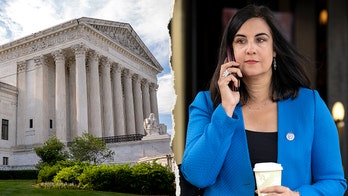Do ObamaCare premiums cost more than a cell phone bill?
Peter Doocy reports from Washington, D.C.
In the midst of March Madness, the White House is making a full-court press of its own: a last-minute push to enroll more than 1.5 million young people in ObamaCare health plans by the end of this month.
But in courting young people, President Obama is making a simple-yet-questionable pitch -- that new health coverage basically costs the same as 4G cell coverage.
"You can at this point get health insurance for $100 a month or less, in some cases less than your cell phone bill or your cable bill," Obama told Ellen DeGeneres this week.
Really?
Monthly cell phone plans on major carriers like Sprint, Verizon, and AT&T cost anywhere from $80-$90.
The weighted average cost of the lowest "bronze" plan on the new health insurance exchanges costs $249. That's before subsidies kick in, though -- so it really depends on whether the customer qualifies for that government help.
The president is also telling uninsured Americans that if price is a problem, maybe they should cut out other utilities, such as cell phones and cable TV.
During a March town hall meeting hosted by Univision and Telemundo, Obama said of the uninsured, "it may turn out that they just haven't prioritized health care."
Many young people scoffed at the suggestion they give up being connected, to get covered.
"It's just ignorant of the times," said one young Obama supporter, Chelsea Andrews. Andrews has insurance and a phone, but said that she would never part with either, instead resolving to figure out how to keep both if she were in a financial bind. "I really support Obama but that was off-base for him, I think."
Other young Americans agree.
"I'm single, I'm very healthy, and I don't have a lot of medical expenses that I pay," said Nick Lowenstein, outside a Washington, D.C., mall. "I'm glad to pay my cell phone and cable and those are two things I don't want to not have in my life."
But some aren't so sure their lives would change without a cell phone.
"If people want to find me, they can find me," Alicia Subasinghe said. "My mom knows where I am, they know where I live, so I don't need a cell phone as much as I need health care."
The administration is still pushing to get young people covered by the sign-up deadline of March 31. As of March 1, just a quarter of new enrollees were between 18 and 35 years old. The administration has suggested they need a grand total of 2.7 million in that age group to sign up, for open enrollment to be considered successful.













































